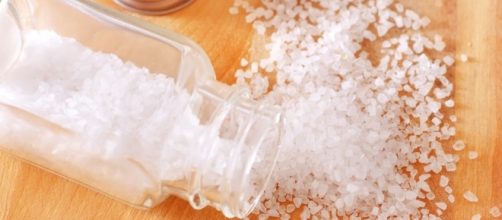Salt intake (sodium chloride) in the world is a matter that should be taken seriously. Recent researches indicate that currently, its per capita consumption is about 12 grams, which is the intake of 4.7 grams per day, twice the recommended by
World Health Organization (WHO).
What to do to reduce salt intake and thus avoid future complications with blood pressure? Leave the salt shaker from the table is a good strategy, but new research shows a new ally in the fight against excess sodium: monosodium glutamate, or MSG.
Glutamate is the salt of glutamic acid - an amino acid found abundantly in nature.
Its major function is not salted foods such as conventional cooking salt, glutamate is used as flavor enhancer because it balances, mixing and rounds the total awareness of other tastes.
His taste is called umami as part of the five basic tastes of our taste - along with sweet, sour, bitter and salty. It was discovered in 1908 by Japanese scientist Kikunae Ikeda, and its main features are increased salivation and continuity of taste for a few minutes after eating the food, since it highlights the very taste of the food.
And it is by enhancing the flavor in our taste buds that glutamate has been pointed out by experts as an ally in reducing salt intake and consequently the aid of blood pressure control.
"Glutamate imparts a pleasant taste and causes individuals consume a smaller amount of sodium chloride since it has one third the amount of sodium present in table salt", pointed Dr. Felix Reyes, Doctor in Food Science Havard .
Glutamate can be purchased on the market. "It's a little more expensive than ordinary table salt, but much more beneficial to health.
And the advantage is that you can use with the same measures of salt. A tablespoon of salt, for example, has the same effect as Tempering a tablespoon of glutamate. Then, the method of preparation of the meals need not be changed, "concluded Reyes.
Check out 5 tips to reduce your salt intake:
1 - Opt for seasonings that do not contain sodium such as fresh herbs, fresh garlic or powder, dehydrated onion, dried mustard, coriander, lemon, mint, cumin, basil, thyme, dried bay leaves, ginger, pepper, chives and parsley.
2 - Prepare your sauces at home instead instead of buying the finished version, which only brings harm to health. Mix oil and herbs, for example. Or vinegar with other ingredients.
3 - Prefer the fresh vegetables, forget the canned vegetables. The amount of salt present in these products is high and harmful to health.
4 - The same goes for meat. Canned tuna and sardine usually have a high amount of salt, as well as processed meats.
5 - Reeduque your palate. Before adding more salt to the dish, try to feel it is their taste - sometimes added salt to more without.

